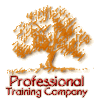Team Building
TeamWork in Action™ | It
Takes All Types™ |
Communication and Community™
| Effective Leadership
Workshops, facilitated meetings, and focused
retreats to help colleagues work more productively together.
Consulting
TeamWork
in Action ™
Course summary
TeamWork in Action™ trains participants
in a quality process for productive group efforts.
Participants learn how to work together effectively,
using a proven model for solving problems and
making decisions. In addition, participants
learn vital teamwork skills that support this
quality process and improve routine effectiveness.
Learn how to . . .
- Conduct productive meetings.
- Use three techniques for brainstorming.
- Set specific, measurable goals and objectives.
- Use techniques for creating true consensus.
- Make clear assignments.
- Use contracts and other techniques to confirm agreements.
- Explore even "touchy" issues with effective discussion
techniques.
- Understand the effect of personality on behavior, while establishing
group norms.
- Clarify the limits, purpose, and ground rules of your team.
Who should attend
Leaders and members of teams that are "forming," "norming,"
or in need of "re-forming." Teams may be work-based or special-purpose,
local or trans-organizational.
How you will learn
This program features presentation, demonstration, discussion, and extensive
exercises, some videotaped. 2 or 3 days.

It
Takes All Types™
Course summary
For teams at any stage of development, It
Takes All Types™ builds personal
awareness and tolerance of differences. Though
it uses a personality matrix (like the Myers-Briggs),
this program discourages labeling. Instead,
It Takes All Types™
encourages understanding differences and appreciating the practical benefits
of diversity.
Learn
how to . . .
- Understand how personality differences affect communication.
- Assess your own preferred type.
- Apply type awareness to normal work activities.
- Ensure diverse and creative teams.
- Promote tolerance.
- Improve communication.
- Clarify expectations.
Who should attend
Teams at any stage of development; managers and supervisors; and anyone
who wants to improve their interactions with others.
How you will learn
Presentation, discussion, individual and small-group exercises. 1 or 2
days. (Materials and leadership training available.)

Communication
and Community™
Course summary
New teams, old teams, teams in crisis, teams in ruts—teams and groups
at all levels of development must discover their core values and establish
common processes. They must build a community of thought and practice.
Communication
and Community™ is
a highly tailored program of directed learning, facilitated discussion,
and structured experience. Specific training modules or activities are
integrated into the program, reflecting the needs and goals of your team.
Specific objectives consider your organization's needs. In all cases,
however, the goal is improved team cohesion and communication.
Particularly suitable for retreats, Communication
and Community™ helps participants discover and apply effective
communication skills as they work toward team goals in a structured, positive
environment.
Who should attend
Executive teams, management teams, functional work groups, ad hoc teams,
and other groups who wish to work productively, creatively, and harmoniously.
How you will learn
Individual and group exercises, directed learning experiences, and other
learner-determined activities. Depending on the needs of the team, formal
training sessions in specific concepts and skills may also be offered.
2 or 3 days.

Effective
Leadership
Course summary
The word "leader" goes with "people." Leaders are
expected to improve human performance, as well as to manage resources.
Yet many professionals are promoted to leadership positions because they
succeed with numbers and facts—not with people. These professionals
soon learn that poor communication skills can undermine credibility and
general effectiveness.
Effective leaders must be confident leaders. Such leaders know and trust
themselves, and their behavior inspires confidence in others. To feel
confident, leaders must interpret their organizational titles in unique,
principled, and personally valid terms: Leadership is not a one-size-fits-all
role.
Effective Leadership helps you define
and internalize your leadership style. You will learn and practice effective
communication skills, including Scripting
Successful Discussions™.
Learn how to . . .
- Identify your own leadership type.
- Clarify leadership ideals and behaviors.
- Script successful meetings and discussions.
- Listen to acquire complete information and modify behavior.
- Assert positive leadership.
Who should attend
Scientific, technical, and business professionals who have made or who
are making the transition to leadership roles in their organizations.
Class size is limited to 10.
How you will learn
Training is conducted over 2 full days of presentation, discussion, individual
and small-group exercises, plus videotaped role-playing exercises.

|
